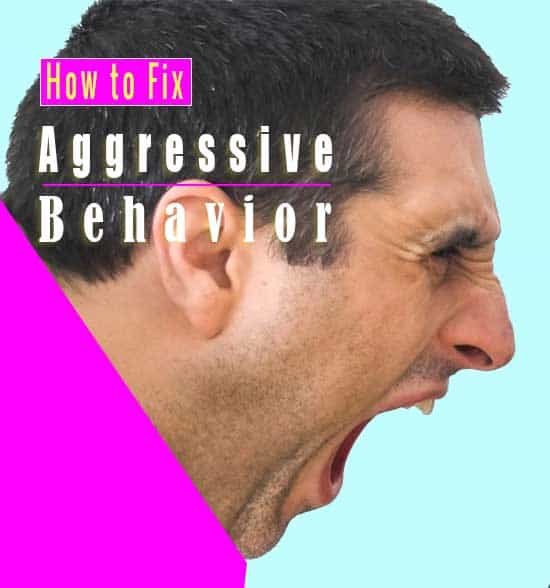
Someone’s, aggressive behavior can make physical or mental problems to others.
It commonly ranges from oral to physical abuse.
Aggressive behavior disturbs social boundaries. It can also occur your relationships to break up.
It can be noticeable or secret.
Sudden aggressive outbreaks are reasonable and even common in the right situations.
But, you should consult your doctor if you see aggressive behavior often or in patterns.
When you are with aggressive behavior, you may notice restless and short-tempered.
You feel managing your response is going to be very difficult.
You might not think which manners are suitable socially.
In other circumstances, you might behave violently on purpose.
You may be using aggressive behavior to take revenge or to irritate somebody.
It’s vital to know the causes of aggressive behavior for finding out the primary reason.

Read More: Symptoms of Confusion, Causes, and Prevention: Everything You Need to Know
What Are the Causes of Aggressive Behavior?
Your behavior depends on many factors. The following things are:
- Physical health
- Emotional health
- Family structure
- Work or school surroundings
- Affairs with others
- Social or socioeconomic issues
- Life Experiences
- Personal characters
During adolescence, someone may react violently in their bad experiences, such as he or she may be frustrated.
Your aggressive behavior may also be related to depression, worry, post-traumatic stress disorder, or other emotional health disorders.
Effects of Aggressive Behavior on Health:
Many mental health disorders can occur due to aggressive behavior including:
- Autism spectrum disorder
- Schizophrenic disorder
- Attention deficit hyperactivity disorder (ADHD)
- Manic depression
- Behavior disorder
- Post-traumatic stress disorder (PTSD)
- Short-tempered disorder
Besides, brain damage can decrease the ability to manage violence.
Someone can experience brain damage for the reason that:
- Head injury
- Heart or brain stroke
- Particular infections
- Particular illnesses
Different health conditions occur in aggression in different ways.
For example, a person with autism or manic-depressive illness might act violently, at what time they feel frustrated or incapable of speaking about the emotion.
Read More: 10 Easy and Simple Ways to Improve Brain Power: DON’T MISS!
Causes of Aggressive Behavior in Children:
A few reasons can cause the aggression of the children
- Poor relationship skills
- Poor health conditions
- frustration or Strain
Your child might copy aggressive behavior that they see daily.
They may learn it from family members, seniors, or teachers.
You can solve it by overlooking or rewarding their violent behavior.
Now and then, children shout for panic.
Children with Schizophrenia, fear, or other mental illness are more common.
Children with bipolar disorder may behave violently during hectic conditions.
Children with depression may act violently if they feel disturbed.
Children might behave aggressively if they are unable to control their emotions.
They are also unable to manage frustration. This is common in children with Autism Spectrum Disorder (ASD).
If they become baffled, they are unable to fix the situation of failure. This can make them enact.
Children with attention deficit hyperactivity disorder or other upsetting conditions may experience a lack of attention. They also become careless.
In some circumstances, these behaviors may be regarded as aggressive.
This is mostly true in the condition, once their behaviors are intolerable socially.
Causes of Aggressive Behavior in Teens:
It is familiar with Aggressive behavior in teenagers.
Let’s say, many teens behave rudely or make arguments at times.
Your teen might have aggressive behavior problems if they act like these:
- Shout during discussions
- Fights to others
- Bully others
In some circumstances, they may behave violently for the reason that:
- Strain
- Substance abuse
- Peer pressure
- Bad relationships among the family members or others
Read More: Health Benefits of Asparagus: Only This Vegetable Can Manage 10 Health Issues!
Puberty can also be a stressful time for many teenagers.
If they don’t realize or know the way of changing in the period of adolescence, your youth may turn aggressively.
If they have a mental health problem, it can also show aggressive manners.
How to Treat Aggressive Behavior?
In this case, you need to find out the primary causes of aggressive behavior.
It may help to discuss somebody your feeling.
In some circumstances, you can know the way to control annoying situations by changing your lifestyle.
You can also improve tactics for controlling irritating conditions.
Let’s say; you can learn the way to connect people more honestly and openly, without being aggressive.
Your doctor may suggest psychotherapy for controlling aggressive behavior.
Such as, cognitive behavioral therapy can help find out the way to control your behavior.
It can help in improving and managing mechanisms.
It can also help you know the effects of your activities.
Talk therapy is one more option. It can help you see the reason for your anger.
It will help you work over negative outlooks.
In some circumstances, your doctor may prescribe medicines to manage your aggressive behavior.
For example, they may suggest you take anticonvulsant drugs like carbamazepine and phenytoin.
A person with Alzheimer’s, schizophrenia, or overexcited, may recommend mood relief medications.
They may also advise you to take omega-3 fatty acid supplements.
Your treatment plan may be different, depending on the primary causes of aggressive behavior.
Discuss with your doctor to know about your condition and treatment selections.
If you can’t control your anger, it may turn into more violent and aggressive behavior.
But, there are some treatment preferences available for aggressive behavior.
You should follow the doctor’s advice to help you gain control, before you may hurt yourself or others.
Aggressive behavior seldom occurs for any reason.
Finding the primary causes of aggressive behavior can help you stop triggering the situation.
Consult your doctor to know the primary causes of aggressive behavior.








